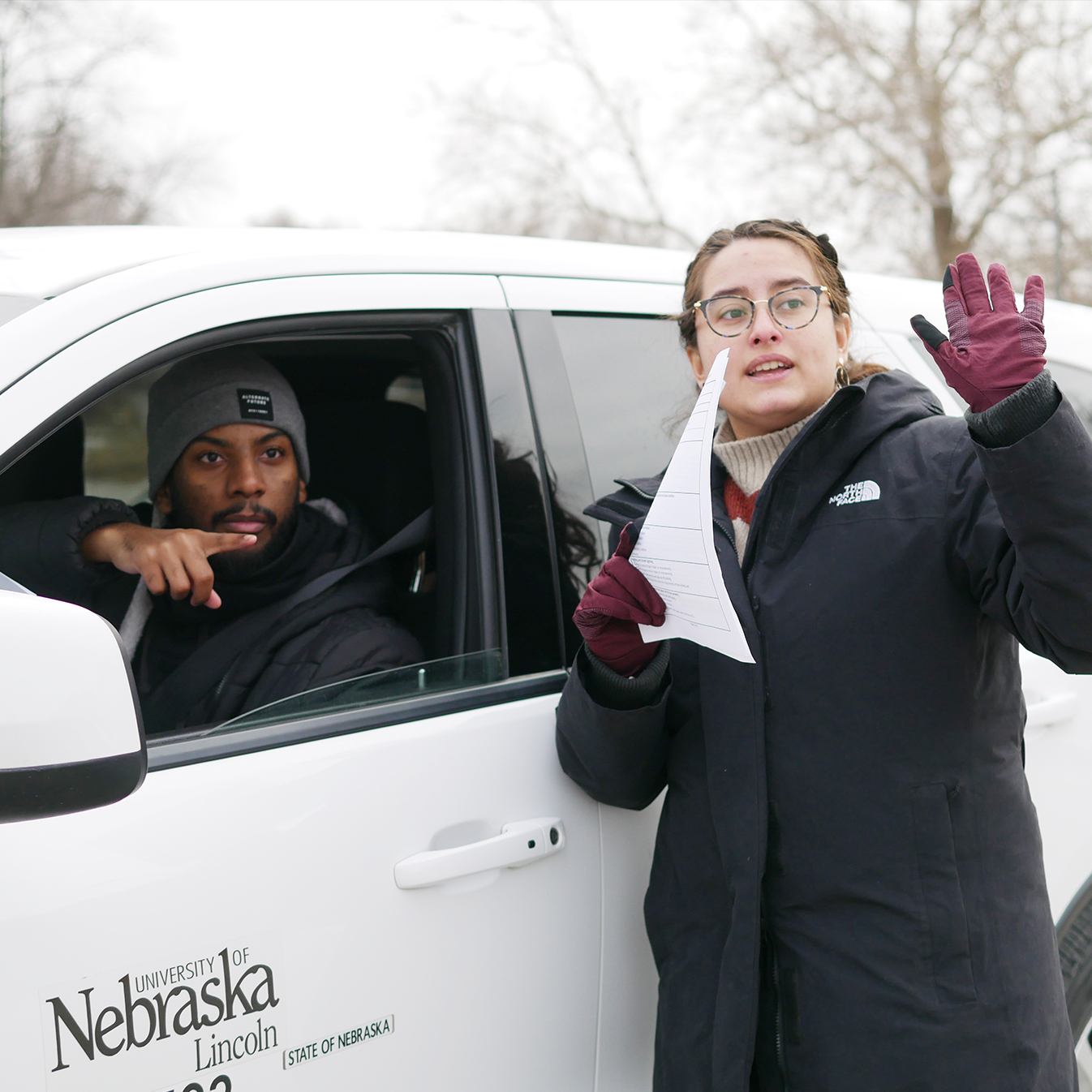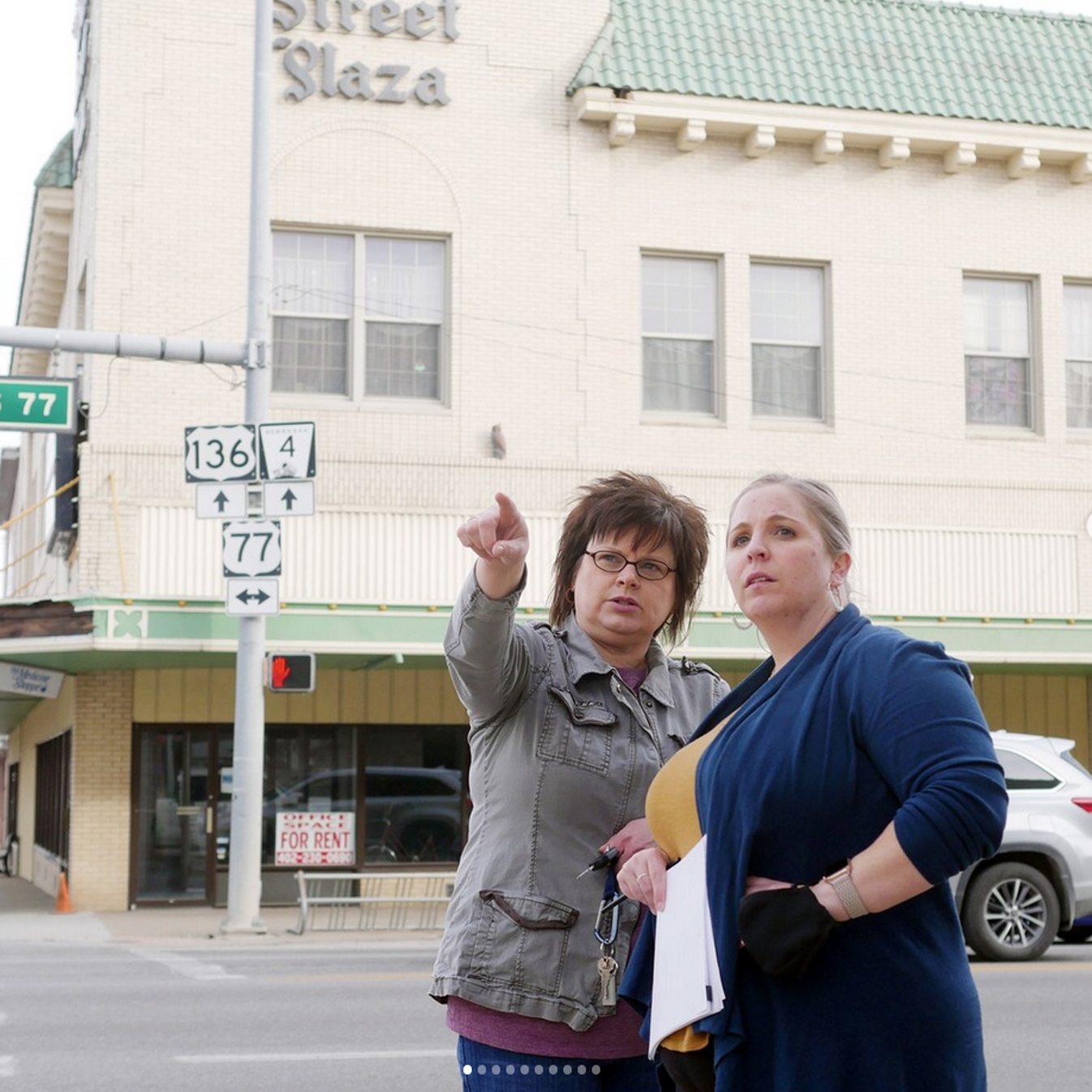Community & Regional Planning

Community & Regional Planning
Degree Opportunities
Program Description
The Master of Community and Regional Planning (MCRP) program is a nationally-accredited, professional degree with a focused orientation towards excellence in urban, suburban, rural, and regional planning practices. A master's degree serves as the normal academic credential for roles in planning and planning-related domains. Our accomplished MCRP graduates demonstrate exceptional skills and expertise in diverse careers spanning the public, private, and nonprofit organizations.
Why MCRP at UNL?
The MCRP program stands as a distinguished two-year master's program, holding national accreditation since the 1970s. We have successfully equipped hundreds of aspiring planners for successful and fulfilling careers across a dynamic spectrum of disciplines, including transportation planning, urban development, urban design, land use planning, affordable housing, environmental conservation, historic preservation, hazard mitigation, governance, non-profit initiatives, advocacy, consultancy services, and more. The integration of real-world planning opportunities serves to reinforce our unwavering belief that your time as a MCRP student at UNL will be genuinely transformative. The influence of our MCRP graduates extends not only within the borders of Nebraska but also radiates across the nation and throughout the world.
Strengths of MCRP program at UNL:
- Real-World Project Immersion: Our program is characterized by semester-long real-world projects that offer hands-on learning experiences and skill development for students.
- Personalized 1-1 Mentorship: The student-practitioner mentorship program provides personalized and insightful guidance to foster students' career development.
- Flexible Learning Options: We accommodate the needs of both full-time and part-time working students through a range of options, including online, remote access, and night-time courses.
- Abundant Internship Opportunities: Situated in the state capital, the City of Lincoln, our program capitalizes on its location to offer rich internship opportunities within city, state, and federal agencies, providing students with a diverse array of professional experiences.
- Gateway to Globally Recognized Industries: The Omaha area, renowned for its world-class top-tier architectural and design industries, presents exceptional prospects for students interested in community development, urban design, and planning professions. This unique setting enhances learning through real-world engagement.
- Addressing Critical Needs: Our program is dedicated to serving the critical needs of the state of Nebraska and beyond, contributing to sustainable development, thoughtful urban planning, and resilient communities through the education and expertise of our graduates.
MCRP Program Overview
Planning is a dynamic profession that helps communities create sustainable, attractive, healthful, efficient, and supportive places for present and future generations to inhabit and enjoy. Planners serve in a variety of roles that positively impact the physical, environmental, social, and economic vitality of the communities in which they are working. Among the functional areas in which planners focus their professional skills are land use, economic development, transportation, housing, human services, and various aspects of the physical and natural environment.
Today’s professional planners are adaptive, engaged, and collaborative—using knowledge and skills that are developed in UNL’s Master of Community and Regional Planning (MCRP) program. UNL’s MCRP program is the only planning degree program in Nebraska.
Nationally accredited by the Planning Accreditation Board, the program has a respected tradition of educating and graduating students who can facilitate positive change in the communities in which they are working. Students in the MCRP program reflect the diversity of the field of planning, entering the program at various points in their academic and personal lives with diverse academic backgrounds and professional experiences. The MCRP program includes required core courses, as well as sufficient elective credit hours to enable students to develop specialized skills and interests within the field of planning. These skills are in high demand.
Our program places a strong emphasis on cultivating diverse internships, actively engaging in real-world projects, and fostering compassion for both self and others. The content of our program reflects the cutting-edge dynamics of policy planning and analysis, planning education, and the practice of planning itself. Within our MCRP curriculum, there exists a flexibility that empowers us to effectively respond to the evolving demands of society and the planning profession. Our teaching equips students with the practical skills necessary for entry-level professional roles, while also instilling a robust foundation in planning knowledge and skills to facilitate career advancement and advanced study. Guided by our curriculum, students embark on a journey to cultivate personal attributes essential for effective professional planners, including leadership, communication, analytical, coordination, facilitation, and writing skills, within the context of collaborative teamwork.
Program options (specializations, dual degrees, certificates, accelerated program, and minors)
- Students in the MCRP program can pursue three interdepartmental specializations: Environmental Studies, Great Plains Studies, and Water Resources Planning and Management.
- Students in the MCRP program can pursue four dual degree: MCRP/Juris Doctor (MCRP/JD), MCRP/Master of Architecture (MCRP/MArch), MCRP/Master of Science in Civil Engineering (MCRP/MS-CE), and MCRP/Master of Public Health (MCRP/MPH).
- Students in the MCRP program can pursue two graduate certificates as a part of the 48 credits of the MCRP degree: Graduate Certificate in Public Management Curriculum and Graduate Certificate in Urban Design.
- For the undergraduate students in the Bachelor of Science in Environmental Studies (BSES) degree program at UNL can pursue the accelerated graduate program of BSES and MCRP.
- Students in other majors can pursue the Graduate Minor in Community and Regional Planning, and Minor in Community and Regional Planning - Undergraduate.
Planning Accreditation Board (PAB)
The Master of Community and Regional Planning graduate program is accredited by the Planning Accreditation Board (PAB), which ensures a high quality of urban planning education among accredited degree programs. The MCRP degree program at UNL has been continuously accredited by the PAB since 1972.
Featured Work
David City Downtown Revitalization Plan
The College of Architecture at the University of Nebraska-Lincoln (UNL) and the Southeast Nebraska Development District (SENDD) are partnering with local community members on a downtown revitalization plan for David City. As part of the planning process, students traveled to David City for a community meeting and toured the area. David City community members were asked to take a survey to help UNL students better understand the needs of the downtown area and community concerns.
Dr. Zhenghong Tang, the professor and program director of the Community and Regional Planning (CRP) Program said, “Students in the CRP program will have a great opportunity to learn from this real-world planning project and apply their expertise and skills to help the community for more effective planning strategies for downtown economic development.”
For this project, the faculty and students are conducting a community stakeholder survey, participating in numerous community meetings, making field surveys and assessments and organizing planning strategies and recommendations. “I really appreciate the collaborative support from David City, Nebraska, and the Southeast Economic Development District,” said Tang.
“This downtown revitalization plan will be a great tool to guide the city on the track to potentially igniting the local economy,” said Lecturer Frank Ordia. The plan will draw on David City’s strengths, with Ordia noting that “the number of historic buildings here are the foundation of reimagining David City.”
Local community members are excited about the project. “We are grateful that SENDD and UNL are willing to help our community create a vision for the future of our downtown,” said David City’s City Administrator, Clayton Keller. “David City recently completed a downtown project that addressed the infrastructure needs of the area. We hope to keep that momentum moving forward as we turn that focus to economic and property improvements.”
Mayor Alan Zavodny said, “We are looking forward to our partnership with SENDD and the University of Nebraska for David City’s downtown revitalization. The downtown of a community like ours is the heartbeat of our community. We realize the importance of this endeavor.”
The downtown revitalization plan also bolsters support from local business owners, with Mike Moravec, owner and president of Moravec Financial Advisors, Inc. said “As a long-time resident and business owner in David City, it’s exciting to hear of a potential downtown revitalization effort. David City has a lot of positive things happening and the timing is perfect for a refresh of our downtown. I know the business community will welcome CRP and SENDD’s help on this project. It’s important to our local economy, that our downtown be an inviting space that people want to come to dine, shop and do business.”
By Ava Gagner More news from: The College of Architecture College News Huskers named to spring Deans’ List Ordia honored with IDEC Teaching Excellence Award SGH CONCEPTS & DRI-DESIGN COMPETITION WINNERS! PAC Prize Winners Announced Lecturer Frank Ordia Receives Historic Preservation Award College of Architecture Construction UpdatesFollow the College of Architecture






